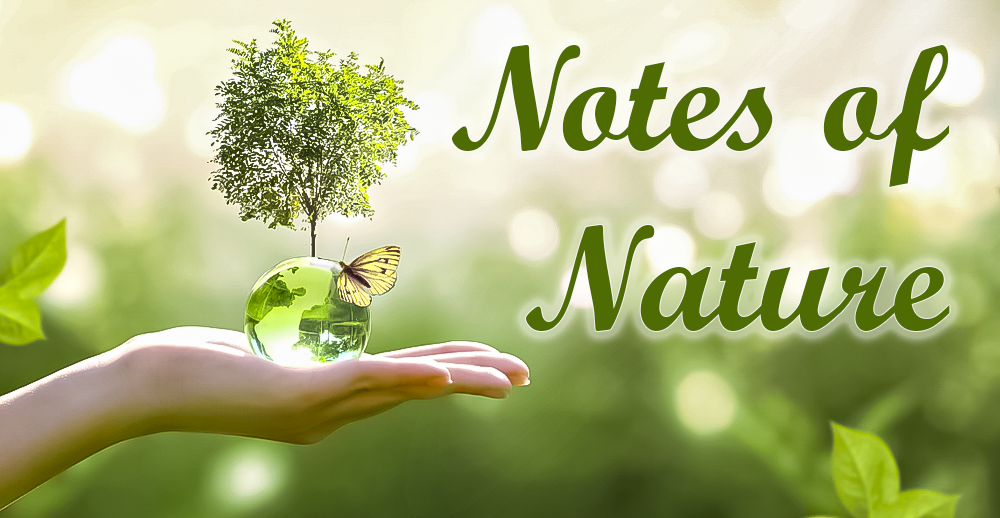Another exciting proposition was being a botany astronaut. Plant science is going on in space right now. A great example being NASA's Mike Hopkins, who grew up on a farm outside Richland, Missouri and ended up being an astronaut. He has been sharing photos of the plants he's growing during his stay on the International Space Station, including this pumpkin:
A new pumpkin is on its way! It took a week to reach this point from when I first put water on the seed. pic.twitter.com/ivXRHxmqvN
— Mike Hopkins (@AstroIllini) December 8, 2013
The last person we come across is Rob Baan, who James calls - quite rightly - "Marketing Man". Because such a small amount of species are our key bedding plants, the way to sell them in bulk is by lowering your price. Rob was selling begonias as bedding plants, but then started selling them as edibles! He has since been growing plants as edibles or for very interesting uses. A great example is that Rob sells the pitcher of the pitcher plant as a drinking vessel! He's even found a species of pitcher than can go through a dish washer once, meaning you can use this fancy mug twice.
But Rob's not just about making money from clever marketing, he's also giving back. He's put his talents to use in propogating the very rare Hawaiian Palm (Brighamia insignis) and part of the profits go back to the conservation programme in Hawaii.
With the talk coming to a close James gives us some golden tips for getting into horticulture that he wished he'd been told when he was a student:
James Wong's rules on getting ahead in horticulture
- It won't be handed to you. You need to get in touch with people, for example via Twitter or LinkedIn, also see 'What next?' below.
- Break the mould. James used the example of Tregothnan, the only people to tea in England. Their English tea sells for high prices because they broke the mould and did something different.
- Know your worth. Before anyone else will value your skills, you must value them. You can value your skills be charging appropriately for them - not selling them cheap.
- Keep at it.
- Train, train and train some more. This is such an important part because botany and horticulture are such vast subjects that we can be learning for a lifetime. Embrace this and enjoy the process.
- Be proud of who you are. James points out that we are a nation who are proud of who we used to be, for example, the Victorians. But he points out the the Victorians were people who were always breaking the mould and progressing. We need to do the same thing and become proud of who we are as a people, and as an individual, now.
Oh and sorry kids at @WiltsColl for dropping an F bomb tonight. Normally not v sweary. Got a bit carried away ranting!
— James Wong (@Botanygeek) February 13, 2014
That's right, mid-rant Mr Wong dropped an F bomb. But rather than being offensive it brought a certain gravity to what James was saying. To me, the atmosphere in the room changed. We were now not just being entertained, but we were really listening; becoming inspired by this important message.
I don't know what others felt as they left the room that night, but I did and still do feel inspired by this message. I've even picked up a rather daunting plant science book that I've been worried about reading in case I didn't understand it. Well so blumming what if I don't understand it - I have an inquiring mind and I will find a way to understand how plants work and how we can use them. Thank you, James.
What next?
- Ensuring you have a professional and up to date LinkedIn profile. You can even link to this on your CV ensuring that employers can see an unabridged version of your experience and passion for horticulture. There's plenty of advice on making the best of LinkedIn online, but if you can't find what you need, contact me and I'll do my best to assist.
- Have a look at the types of career generally available at websites such as Grow.
- Visit relevant websites, like the Institute of Horticulture and the RHS for information about the industry and courses to progress your learning and academic qualifications.
- Download the PDF of the RHS report "Horticulture Matters".
- Search for jobs on relevant websites such as Horticulture Jobs.
- Keep up to date with the horticulture industry by reading publications such as Horticulture Week.
- And finally - follow all of these organisations any way you can - Twitter, Facebook, LinkedIn, etc. If they're communicating about horticulture - you need to know!
- If you need more inspiration, visit James Wong's website and read his 100 ways to finish the sentence "I love being in the garden because..."
To finish off, I'll leave you with the video that James left us with at the end of the talk.
Enjoy!

I'm glad to see 'plants in space' is restarting, but sadly there has been minimal rigorous work in the last 30 years. The state of the art is still in an issue of Annals of Botany (I am current Editor), and was discussed by my father at http://aob.oxfordjournals.org/content/54/supp3/1.full.pdf+html , with an overview from NASA at http://aob.oxfordjournals.org/content/54/supp3/3.full.pdf+html (hopefully will be freely available download later today; whole special issue at http://aob.oxfordjournals.org/content/54/supp3.toc, $$££). There is a lot of more modern work on plants and microgravity etc but little new on plants in space.
ReplyDeleteThanks for our comment and the links to AOB. I've never really thought about plant experimentation in space and it's amazing to think that these experiments were being done such a long time ago.
Delete